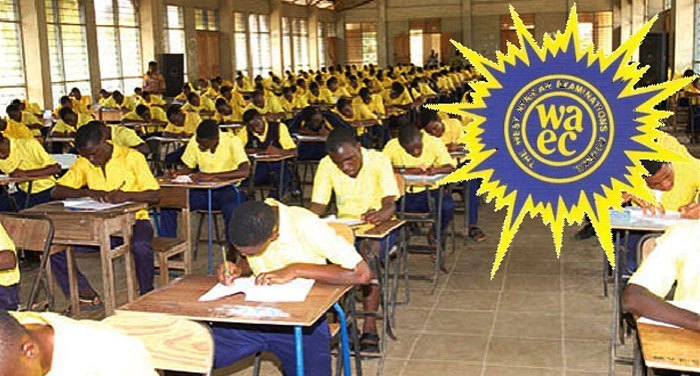

WAEC Physics Practical 2022: WAEC Physics Practical Questions and Answers 2022 is now release for the May/June 2022. WAEC Physics Answers (100% legit) verified Free for West African Examinations Council. WAEC Physics Practical Questions For you to have good WAEC result in Physics as well as repeated questions for free in this post. You will also understand how WAEC Physics practical questions are set and how to answer them. The West African Examinations Council is an examination board established by law to determine the examinations required in the public interest in the English-speaking West African countries, to conduct the examinations and to award certificates comparable to those of equivalent examining authorities internationally#
WAEC Physics Practical apparatus
QUESTION 1:
(a) You are provided with a uniform metre rule, a knife-edge, masses, and other necessary apparatus.
(i) Suspend the metre rule horizontally on the knife edge. Read and record the point of balance G of the metre rule. Keep the knife-edge at this point throughout the experiment.
(ii) Using the thread provided, suspend the object labeled W at the 15 cm of the metre rule.
(iii) Suspend a mass M = 20 g on the other side of G Adjust the position of the mass until the metre rule balances horizontally again.
(iv) Read and record the position Y of the mass M on the metre rule.
(v) Determine and record the distance L between the mass and G. Also determine and record the distance D between W and G.
(vi) Repeat the procedure for four other values of M = 40g, 60g, 80g, and 100g. In each case, ensure that W is kept constant at the 15 cm mark and the knife-edge at G.
(vii) Evaluate L¹ in each case. Tabulate your readings.
(viii) Plot a graph of M on the vertical axis against L¹ on the horizontal axis.
(ix) Determine the slope s, of the graph.
Evaluate s/D
(x) State two precautions taken to obtain accurate results.
(b) (i) State the principles of moments.
(ii) Define centre of gravity.
QUESTION 2:
You are provided with a beaker, a thermometer, a stirrer, a measuring cylinder, a Bunsen burner, a wire gauze, a pair of tongs, water, tripod stand and other necessary materials.
(i) using a measuring cylinder, measure 150cm3 of water into the beaker.
(ii) record the volume v of the water in the beaker
(iii) calculate the mass m of the water, given that m = pv and p =1gcm-3
(iv) measure and record the initial temperature of the water in the beaker.
(viii) evaluate
(ix) empty the content of the beaker and repeat the procedure above for other values of v = 200cm3, 250cm3, 300cm3 and 350cm3
QUESTIONS
(i) tabulate your readings
(ii) plot a graph with m on the vertical axis against on the horizontal axis
(iii)determine the slope s of the graph
(iv) Evaluate k=
(v) State two precautions taken to ensure accurate results
7(b) (i) define heat capacity
(ii) an electric kettle rated 1.3kw is used to heat 800g of water initially at a temperature of 20. Neglecting heat losses, calculate the time taken for the kettle to heat the water to its boiling point (take the boiling point of water = 100. Specific heat capacity of water = 4200Jkg-1k-1)
QUESTION 3:
You are provided with a potentiometer AB, 2Ω standard resistor R, A battery of emf 3.0 v, a jockey J and other necessary materials
(i) connect a circuit as shown in the diagram above
(ii) close the key K. Without J making contact with AB , read and record the ammeter reading I. Open the key
(iii)use the jockey to make contact with AB at the 20cm mark such that AJ = x =20cm. close the key, read and record the ammeter reading I
(IV) Evaluate x-1
(v) repeat the procedure for values of x = 35cm, 45cm, 60cm and 80cm respectively
QUESTIONS
(i) tabulate your readings
(ii) plot a graph with x-1 on the vertical axis and I on the horizontal axis starting both both axes from the origin (0,0)
(iii)determine the slope s of the graph
(iv) from your graph, determine the value I0 of I for which x-1 = 0
(v) Evaluate
(vi) State two precautions taken to ensure accurate results
12b(i) define emf of a battery
(ii) a cell X of emf 1.018v is balanced by a length of 50.0cm on a potentiometer wire. Another cell Y is balanced by a length of 75.0cm on the same wire. Calculate the emf of Y
Physics No1 Solution Loading Keep Refreshing
Physics Practical No 2 Solution Loading Keep Refreshing
3.
b. (i)The principle of moment states that for a body in equilibrium, the sum of the clockwise moments about a point is equal to the sum of the anticlockwise moments about the same point.
(ii) The centre of gravity of a body is defined as the point through which its resultant weight acts.
The Lagos State Police Command has arrested two suspects for alleged robbery in the Amukoko…
Mikel Merino scored the decisive goal as Arsenal secured a 1-0 victory over Chelsea, cutting…
At least 51 people were killed and more than 100 injured after a fire broke…
The National Drug Law Enforcement Agency (NDLEA) has successfully intercepted numerous drug shipments, hidden in…
Nigerian Army troops from 3 Division/Operation Safe Haven have arrested two notorious kidnappers, Bashir Mohammed…
Relocating to Europe as a non-EU national without a skilled worker visa involves exploring various…